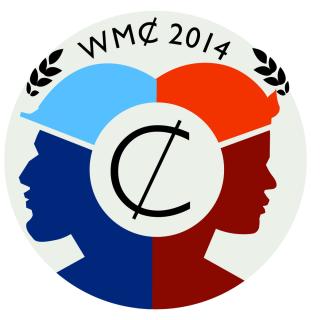
Claire Dunning on Nonprofit Neighborhoods and Urban Inequality
In this month's episode, Claire Dunning explains how and why non-profits came to play such an important role in U.S. cities after World War II. In doing so, she explores the emergence of non-profit neighborhoods amid various changes in urban policy, starting with urban renewal and continuing through the War on Poverty and the rise of community development corporations. While acknowledging all of the important work done by non-profits, the book also draws attention to a central paradox of our reliance on non-profits to address a range of social issues: the dramatic expansion in non-profits has coincided with rising poverty and inequality, rather than their eradication.
2 Aug 202249min

Mircea Raianu on Tata and Global Capitalism in India
In this episode, Mircea Raianu traces the rise of the Tata Group, one of India's largest and oldest companies, from its early days involved in cotton and opium trading to multinational conglomerate invested in everything from salt to software, and, notably, steel. Among the topics discussed, include Tata’s involvement with colonial and anti-colonial developments; international networks of finance capital and scientific management; and Cold War geopolitics. Ultimately, Raianu offers a model for how to study global capitalism in the global South, explicating Tata’s connections to the world and India, while also avoiding the traps of exoticism and over generalization.
7 Juli 202249min

Holger Droessler on Coconut Colonialism, Labor, and Globalization in Samoa
This month's episode centers Samoa, including the Pacific islands comprising the present-day independent country of Samoa and American Samoa, examining capitalism, globalization, and coconut colonialism at the turn of the 20th century. In doing so, it pays close attention to the lives of workers, including plantation laborers, ethnographic edutainers, and service workers, revealing how Samoans navigated colonialism and capitalism, contesting exploitative labor conditions, while, at the same time, articulating their own forms of Oceanian globality.
27 Maj 202246min

Keith Wailoo on Racial Marketing and the Rise of Menthol Cigarettes
In 2020, George Floyd was killed by police outside a store in Minneapolis known as “the best place to buy menthols.” Of Black Americans who smoke, eighty-percent smoke menthol cigarettes. In this episode, Keith Wailoo explores the history of menthol cigarettes and their marketing to Black Americans. In doing so, he ties together the history of tobacco companies and the disproportionate number of Black deaths at the hands of police violence, COVID-19, and other forms of racial violence and exploitation, giving new meaning to the cry: “I can’t breathe.”
5 Apr 202247min

Jason Resnikoff on the Automation Discourse and the Meaning of Work
This month's episode takes a deep dive into the history of work and automation in the post-World War II era. It traces the discourse around automation from its origins in the factory to its wide-ranging implications in political and social life. Countering automation's proponents, who prophesize that robots will soon replace human labor, Jason Resnikoff reveals how the automation discourse has tended to obscure the human beings who continue to labor, often in sped up and intensified manners, alongside machines.
7 Mars 202245min

Gregg Mitman on Firestone's Rubber Empire in Liberia
This month's episode focuses on a popular commodity, namely rubber. Despite consuming a large share of the world's rubber supply, the United States has long relied on the global market to meet American demand for rubber. During the early twentieth-century, this dependence on foreign rubber led the Firestone Tire and Rubber Company to the West African nation of Liberia, where the company built one of the largest rubber plantations in the world. What follows is a tale of land expropriation, medical racism, and corporate power that stretches from the 1920s to the 2020s.
4 Feb 202248min

Destin Jenkins on Municipal Debt and Bondholder Power
Indebtedness, like inequality, has become a ubiquitous condition in and beyond the United States. Yet few have probed American cities’ dependence on municipal debt. Focusing on San Francisco, this month's guest, Destin Jenkins, traces the evolving relationship between cities, bondholders, banks, and municipal debt from the Great Depression to the 1980s. In doing so, he sheds new light on the power arrangement at the center of municipal finance, and offers some suggestions on how to contest it.
4 Jan 202257min

Elizabeth Tandy Shermer on Student Loans and Higher Education
It is no secret that the United States is facing a crisis with regards to higher education. In this month's episode, historian Elizabeth Tandy Shermer explains the long history that gave rise to the current situation in which many institutions are struggling financially, while students and their parents are often the ones left to pay the bill with the help of loans.
4 Okt 202147min





















